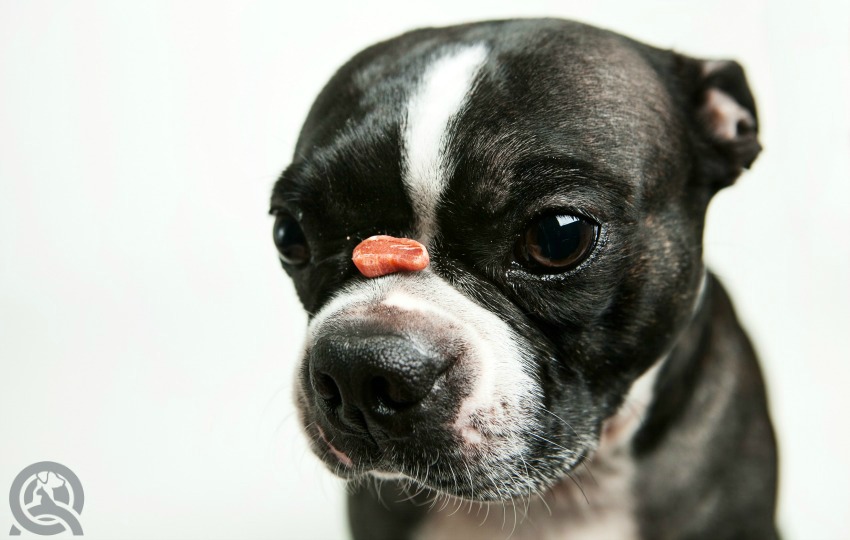Our pets share many of our special moments as faithful companions – but just because they eat, play, and learn alongside us, it doesn’t mean that they can always share the same dietary lifestyles. It can be super tempting when they give us the ‘ole puppy dog eyes, but you have to put your foot down sometimes!
While we can’t exhaustively include every food item that may contain ingredients toxic to your pet pals, there are some foods that we can confidently say should be kept completely out of your pet’s reach.
Keep reading for our list of foods that you should be keeping away from your pets!
1. Alcohol:
This should be a no-brainer. If there’s one item on this list that is just as dangerous to dogs as it is to us, it’s alcohol! We can agree that excessive alcohol takes a toll on our livers. Dogs are generally smaller and weigh less, so they need only a little to become intoxicated. At best, they’ll just vomit everywhere and at worst, they might end up dead. Among the other conditions, dogs may experience fatal respiratory failure, seizures, and comas.

2. Chocolate
This is not a myth! I repeat, this is not a myth! Chocolate contains methylxanthines which are toxic to dogs! They disrupt a dog’s metabolic processes, increase blood pressure, and even just a bit of chocolate (especially dark chocolate) can cause vomiting and diarrhea in some dogs. What happens if they ingest a lot? Trust us that death is a real possibility and forgo testing it out yourself!
3. Macadamia nuts
While some nuts can be super healthy to give our canine companions, macadamia nuts are at the top of the “Do Not Feed” list! They’re the most dangerous nuts that your pets can possibly ingest, and the symptoms include vomiting, increased body temperatures, lethargy, and paralysis. Be alert!
4. Grapes / Raisins
Experts aren’t quite sure what exact chemical in grapes and raisins causes such horrible effects in our pet’s bodies. But grapes and raisins are known to cause kidney failure in dogs, cats, and ferrets. It can be easy to remember not to give them to your pets by themselves, but remember that raisins are commonly found in baked goods like cookies, breads, and bagels – so be on your toes!

5. Allium species of plants
We’re talking chives, leeks, onions, and garlic. While these yummy foods add plenty of flavor to human food dishes, they are highly toxic to cats and dogs. Symptoms include gastrointestinal irritation and anemia. The most important thing to remember is that poisoning from garlic and onions may have delayed symptoms, and poisoning from onions is more severe in Japanese dog breeds and cats.
6. Avocado
The pit and skin of avocados have persin, a toxin that causes vomiting and diarrhea. While the flesh also contains persin, they are in lower concentrations and don’t pose as much of a health risk. It’s still best to just avoid feeding them avocados altogether, though. If they get their hands on the large stone in the middle, they risk blocking their esophagus.
7. Xylitol
This artificial sweetener is commonly found in candy and gum, but it can also be found in many sweet treats that would normally be good for your dog. This sugar substitute that can cause their blood sugar to drop dramatically and even lead to liver damage. Peanut butter is a great protein-rich snack for your dog, but some varieties contain xylitol, so make sure you check the label!

8. Cherries, Peaches, Apples
The flesh of these sweet fruits can be a delicious and nutritious snack, but beware of their pits and seeds! The amygdalin in the seeds become cyanide in the digestive tracts, which we all know is poisonous. Watch out for dilated pupils and difficulty breathing which are symptoms of cyanide poisoning. If you insist on giving them these sweet treats, it may be best to cut up the fruit and de-pit them.
9. Caffeine
Caffeine may give us a much-needed pick-up in the morning, but it can wreak havoc in the bodies of cats and dogs. Caffeine is found in tea, chocolate, and coffee. Ingesting a moderate amount of coffee grounds or a just couple tea bags can cause heart damage and even lead to death in small cats and dogs.
10. Uncooked yeasty dough
While dogs can eat baked breads—although they have no nutritional value—uncooked yeast-filled dough can expand in a dog’s stomach and ferment, causing pain in the dog’s digestive systems. Yeast can also produce ethanol as a by-product…so your dog could become intoxicated eating yeasty dough!
11. Other precautions
While not toxic, chicken and fish bones, broccoli stalks, asparagus, and other tough-to-chew and sharp objects can cause lacerations or block the digestive tracts. Make sure that when you are feeding your pets these meats that you pick out all the bones, and keep them away from foods in high fatty content such as meat grease, fat trimmings, butters, and oils, which can cause pancreatitis (inflammation of the pancreas).
It’s not just foods that your dog will take bites into – find out what plants you should be keeping away from your pet!



